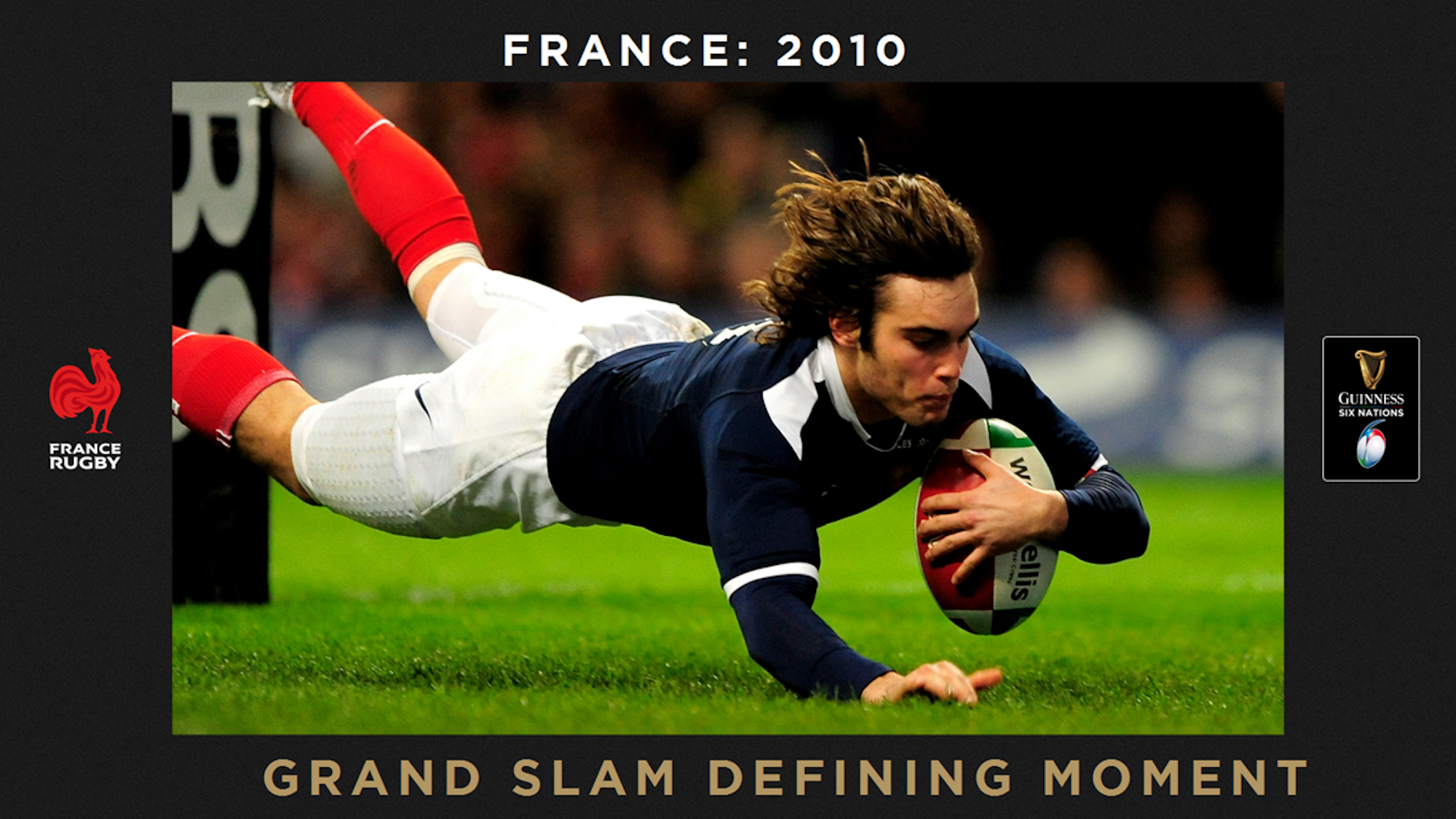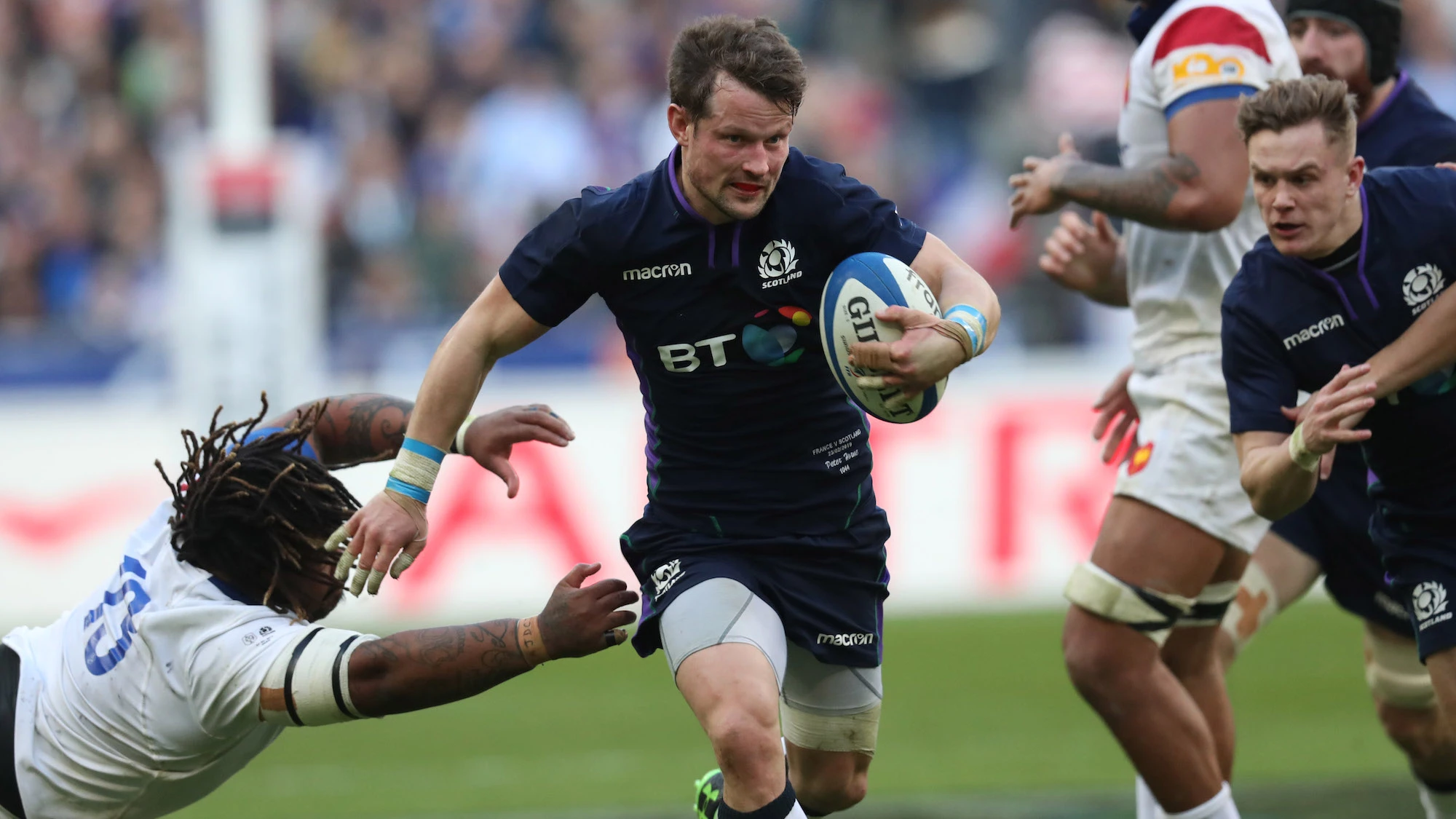When England and Wales meet in the Guinness Six Nations, high quality rugby, blockbuster battles and – most importantly – drama worthy of a Hollywood film is almost guaranteed.
You only have to look at the thrilling contest at Twickenham in this year’s Championship, which saw the hosts claim a 33-30 victory, to understand the rivalry between the two sides.
And there was certainly no lack of excitement when they encountered each other back in 2012 at England HQ, where the scoreboard at the final whistle belied the action-packed 80 minutes.
Wales ultimately emerged triumphant with a 19-12 win in front of more than 80,000 spectators but only after Scott Williams came off the bench to score the match-winning try late on.
His last-gasp effort was not only a decisive moment in the game, it also proved a pivotal moment in the Championship as Wales went on to complete the clean sweep and clinch the title.
THE BUILD-UP
Both sides went into the game eyeing up the Grand Slam after winning their opening two matches of the Championship, while England were the defending champions after their 2011 success.
The hosts claimed the Calcutta Cup in the first round with a 13-6 success over Scotland before edging out Italy 19-15 in Rome to maintain their perfect start to the Championship.
Meanwhile, Wales produced a late comeback to scrape past Ireland 23-21 in Dublin and followed it up with a much more convincing 27-13 win against Scotland at home in Round 2.
Warren Gatland’s side also had revenge on the mind after England’s 26-19 victory in Cardiff a year earlier, which provided the launch pad for Martin Johnson’s side to win the Championship.
But following a disappointing World Cup for England, Stuart Lancaster had replaced Johnson in the top job and was now about to face his toughest test yet since becoming interim head coach.
Despite seven of England’s starting XV having not played at Twickenham before, the hosts started strongly as Owen Farrell pulled the strings alongside scrum-half Lee Dickson.
Farrell and Leigh Halfpenny traded a couple of penalties each after a frantic opening 20 minutes before the England fly-half gave his side a narrow 9-6 advantage at the break.
Another Farrell three-pointer extended England’s lead but while their defence held strong, Leigh Halfpenny capitalised on a couple of errors to level the score with eight minutes left.
THE MOMENT
Scott Williams had started the game on the bench but was brought on for Jamie Roberts soon after the restart and made a significant impact, causing England’s defence all sorts of problems.
He had combined with Ryan Jones to work a priceless opportunity for Gatland’s men to wrestle back in the initiative in the second half, only for George North to get turned over.
But Williams was not finished. With Halfpenny levelling the scores on 72 minutes, the stage was set for someone to stand up and be the hero – and it was Williams who put his hand up.
Courtney Lawes crashed into three Welsh tacklers on halfway but just as he looked to set up a ruck, Williams pounced and ripped the ball from the England man’s hands.
Within a flash, the centre turned and span away before kicking the ball into space and charging through the wall of white shirts as England desperately scrambled back.
Williams was a man on a mission, though, and gathered the bouncing ball before diving over the line for the match-winning score – much to the delight of his teammates and fans alike.
Halfpenny then stepped up to add the extras to leave England with four minutes to salvage a draw but despite David Strettle going close at the death, Wales held on to seal the Triple Crown.
THE AFTERMATH
The then 21-year-old Williams was hailed as a national hero after his try secured a famous win on English soil, with the man himself remaining modest when describing his score.
“Ripping the ball is something we have been working on in training, you see it coming into the game more and more and obviously it also paid off for us,” he said.
“You have to be sharp and quick to rip the ball out, which is what we’ve worked on. He [Lawes] was concentrating on getting tackled by [Wales captain Sam] Warburton.
“I came in and caught him by surprise. It was a bit of a blur after that, I don’t know why I kicked it. I think I did it because I was going to get tackled, and I just got a lucky bounce.
“You can kind of judge the bounce a bit but I just had a feeling it was going to bounce up and it did. The next thing I knew I was over the line and I didn’t know what to do.”
With England out of the way, Wales turned their attention to completing the clean sweep and moved one step closer to the Grand Slam with a hard-fought 24-3 win against Italy.
France were then the only team left between Wales and a perfect Championship but Gatland’s men delivered once again, coming out on top 16-9 to seal a memorable title success.



